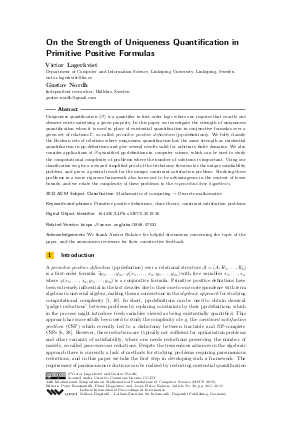LIPIcs.MFCS.2019.36.pdf
- Filesize: 0.55 MB
- 15 pages

 Creative Commons Attribution 3.0 Unported license
Creative Commons Attribution 3.0 Unported license



























Feedback for Dagstuhl Publishing